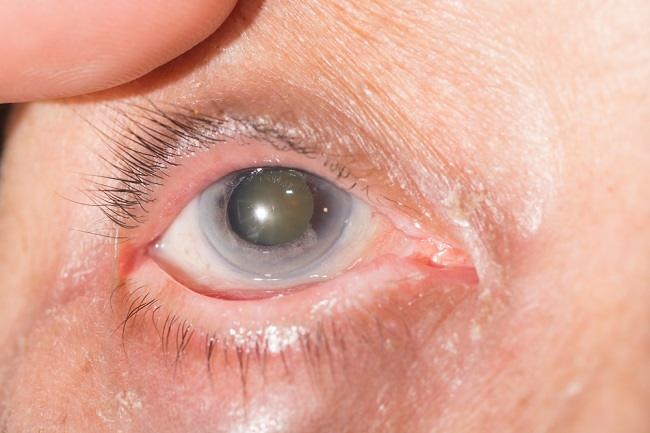Enlargement of the adenoid is a condition in which there is swelling or enlargement of the adenoids, which are organs located at the very back of the nasal passages. Adenoids are responsible for preventing harmful organisms from entering the body, as well as producing antibodies that function to fight infection.
In children aged 0 to 5 years, an enlarged adenoid is a normal condition. Adenoids that have been enlarged will shrink by itself when the child begins to turn 5 years old. Enlargement of the adenoids becomes abnormal if these glands do not shrink.
Although adenoid enlargement is more common in children, it is possible that adults can also experience this condition. See a doctor immediately if you experience symptoms of an enlarged adenoid, such as ear pain or sore throat.

Causes of Enlarged Adenoids
The most common cause of enlarged adenoids is infection. However, in certain cases, enlarged adenoids can also be caused by an allergic reaction.
Symptoms of Enlarged Adenoids
Symptoms of an enlarged adenoid can vary, depending on the cause. However, the symptoms that generally appear are:
- Swollen lymph nodes in the neck
- Ears hurt
- Sore throat.
In addition to the three symptoms above, enlarged adenoids can also cause nasal congestion. When the nose is blocked, the sufferer will experience difficulty in breathing, resulting in symptoms such as:
- Bindeng
- Hard to sleep
- Snoring
- Chapped lips and dry mouth
- Sleep apnea.
Adenoid Enlargement Diagnosis
The diagnosis process begins with a thorough tracing of the patient's symptoms and medical history. After that, the doctor will continue with a physical examination.
In addition to a physical examination, an ENT doctor can perform an examination using an endoscope (nasoendoscope) in the form of a small tube with a camera at the end. This tool will be inserted into the nasal cavity to see the condition of the adenoids. The doctor may also perform blood tests and X-rays. Blood tests aim to detect organisms that cause infection, while X-rays serve to produce images of the organs being observed.
Adenoid Enlargement Treatment
Treatment is tailored to the cause and severity of the condition. If the enlargement is not caused by an infection, the doctor will usually recommend that the enlarged adenoid be left alone until it shrinks on its own. However, if the adenoid does not shrink, the doctor will treat it with medication or surgery.
The type of drug given can be antibiotics (penicillin or amoxicillin) and nasal spray corticosteroids (fluticasone). Antibiotics are given if the cause of the enlarged adenoid is a bacterial infection, while nasal spray corticosteroids are given if the cause is an allergy.
If treatment with drugs is ineffective or complications arise, the doctor will recommend surgical removal of the adenoids, also known as adenoidectomy. This adenoid removal surgery has the potential to cause side effects in the form of:
- Nasal congestion
- Minor bleeding
- Ears hurt
- Sore throat.
However, this operation is relatively simple and the risk of side effects is very small. It would be better if the patient discussed it directly with the doctor regarding the benefits and risks of surgery.
Complications of Enlarged Adenoids
If not treated properly, enlarged adenoids can cause complications, such as:
- Chronic ear infections, can even lead to hearing loss
- Sinusitis
- Weight loss
- Sleep apnea.
Complications can also be caused by surgery. Immediately see a doctor if after surgery you experience the following symptoms:
- There is blood in the saliva
- Bleeding from the mouth or nose
- Shortness of breath to cause wheezing (wheezing).









